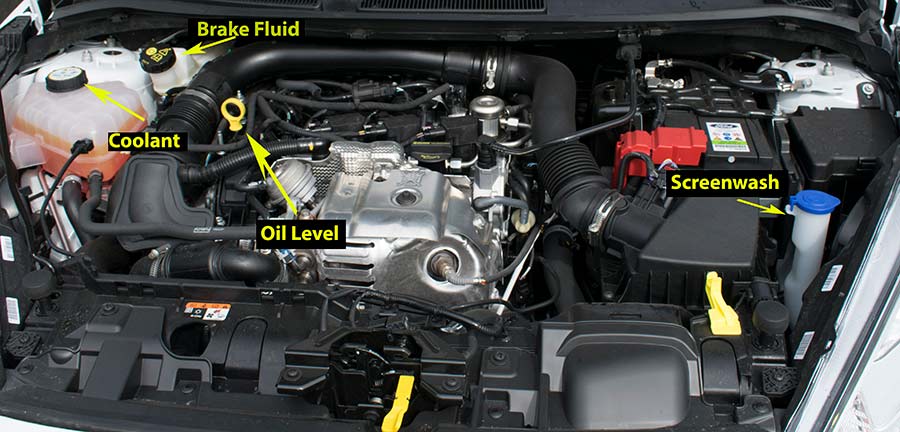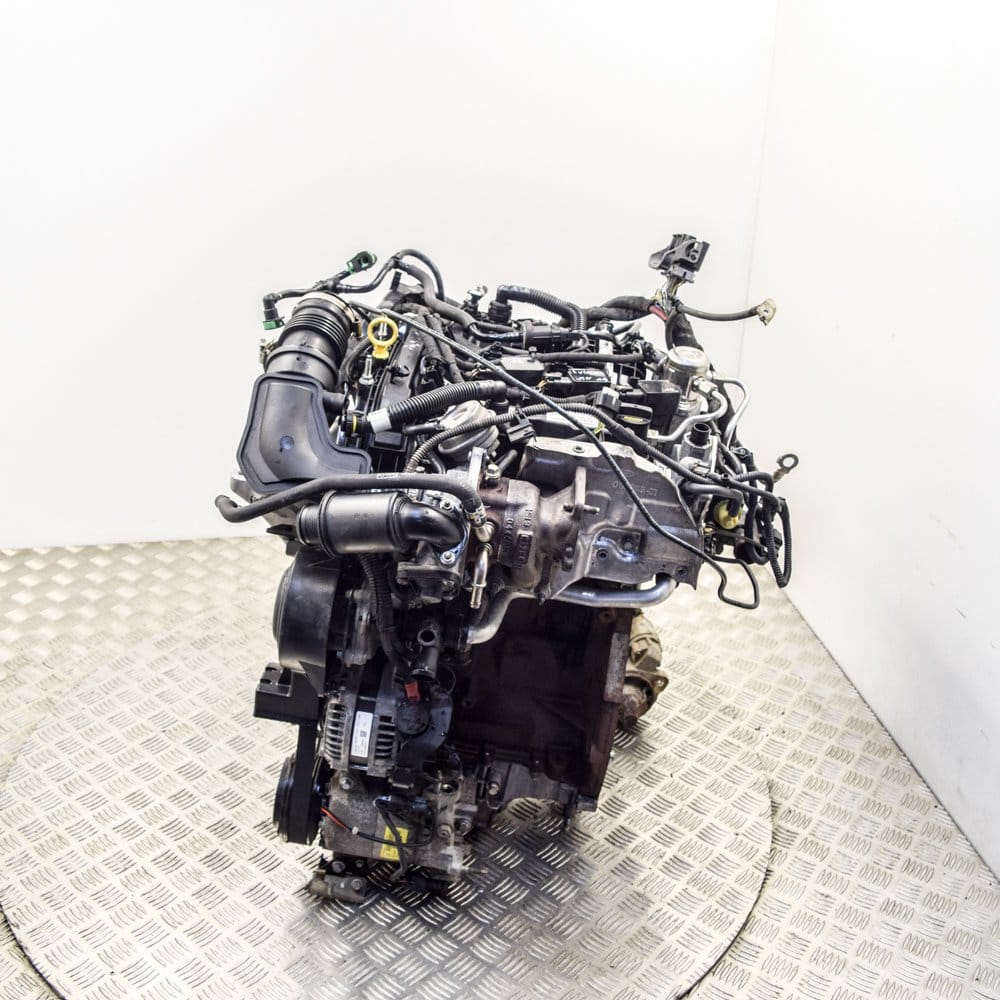Enhance Your Driving Experience with a Reliable Ford Fiesta Engine
Wiki Article
The Future of Engines: Advancements Driving Lasting Power Solutions
As the automobile industry navigates the necessary change towards sustainability, the future of engines is increasingly specified by groundbreaking technologies. Electric engine advancements, together with promising growths in hydrogen gas cells and biofuels, are improving the landscape of power options.Electric Engine Dope
The advancement of electric engine developments indicates a critical change in the automobile and aerospace sectors, driven by the immediate requirement for lasting alternatives to nonrenewable fuel sources. This shift is characterized by significant advancements in battery innovation, power electronics, and electric motor design, which collectively improve the effectiveness and performance of electrical engines.Recent innovations have resulted in the development of lighter, a lot more energy-dense batteries, such as lithium-silicon and solid-state batteries, which guarantee longer varieties and much shorter charging times. In addition, enhancements in electrical motor effectiveness, such as using permanent magnets and advanced cooling systems, allow electric engines to run effectively under differing problems. These enhancements not only improve car performance however also add to a reduction in overall energy usage.
In addition, the assimilation of advanced software formulas has actually optimized power administration in electric vehicles, enabling regenerative braking and predictive charging approaches. As makers increasingly welcome electric propulsion, the vehicle and aerospace industries are seeing a standard change towards greener modern technologies. This development not just satisfies governing demands however additionally aligns with consumer preferences for ecologically friendly transport remedies, strengthening electrical engines as a cornerstone of future lasting mobility.
Advancements in Biofuels
As the automotive and aerospace industries increasingly focus on lasting power sources, advancements in biofuels become a corresponding remedy to electric engines. Biofuels, obtained from natural products such as plants, waste, and algae, offer a cutting-edge opportunity for lowering greenhouse gas emissions and reliance on nonrenewable fuel sources.Recent study has concentrated on boosting the efficiency and sustainability of biofuel production. Second-generation biofuels make use of non-food feedstocks, reducing competitors with food supply and decreasing ecological effect. Developments in synthetic biology have actually enabled the engineering of bacteria to produce biofuels much more successfully, leading to greater yields and reduced manufacturing prices.
Furthermore, the advancement of drop-in biofuels enables seamless assimilation into existing framework, making it possible for a smoother change for industries traditionally reliant on nonrenewable fuel sources. ford fiesta engine. These gas can be used in current engines without modifications, promoting their fostering across different industries
Investments in biofuel innovation, in addition to supportive policies, are vital to drive advancement and scalability. As the worldwide neighborhood looks for to deal with environment change, biofuels use a practical, instant solution that straightens with the overarching objective of sustainability in transport and aviation.
Hydrogen Gas Cell Innovation
An expanding variety of companies and researchers are checking out hydrogen gas cell modern technology as a viable option to conventional power sources in transport and power systems. This modern technology converts chemical energy from hydrogen right into power with an electrochemical response, with water as the only result, making it an eco-friendly choice.The core of hydrogen fuel cells is the gas cell pile, where hydrogen particles are divided into electrons and protons. The circulation of electrons produces power, while protons move with a membrane layer to combine with oxygen from the air, forming water. This process causes high effectiveness and reduced emissions, placing hydrogen fuel cells as a vital player in the transition to lasting power.
Considerable improvements have actually been made in boosting the sturdiness and effectiveness of fuel cells, alongside lowering costs with ingenious manufacturing methods. Moreover, the advancement of hydrogen manufacturing techniques, such as electrolysis powered by sustainable energy sources, improves the sustainability of the overall system. As framework for hydrogen refueling expands and manufacturing methods become much more effective, hydrogen fuel cell innovation holds fantastic guarantee for decarbonizing different industries, consisting of heavy-duty transportation and fixed power generation.
Crossbreed Systems and Their Impact
Hybrid systems represent a substantial evolution go to the website in sustainable engine technology, merging traditional inner burning engines with electric propulsion to maximize power effectiveness and minimize exhausts (ford fiesta engine). This dual method allows automobiles to use both source of power, enabling better flexibility in power intake and lowering dependence on nonrenewable fuel sources

Along with ecological benefits, crossbreed systems supply customers a viable change towards totally electric automobiles. They minimize variety anxiety by integrating the ease of gas with the benefits of electric propulsion, making them an attractive alternative for a bigger target market. As suppliers purchase hybrid innovation, the advancement of advanced battery systems and lightweight products continues to boost efficiency. Generally, hybrid systems stand for a crucial step towards achieving lasting transport and addressing the urgent need for eco-friendly power options.
The Function of AI in Engine Style
Leveraging innovative algorithms and device knowing strategies, the automobile industry is significantly integrating expert system (AI) right into engine design processes. AI boosts the effectiveness and effectiveness of layout by assessing vast datasets to identify optimum setups and efficiency specifications. This capability permits designers to mimic numerous operating conditions and anticipate engine behavior under numerous circumstances, significantly minimizing the time and cost connected with traditional prototyping approaches.Furthermore, AI assists in the development of sophisticated products and burning procedures customized for sustainability. By optimizing gas performance and reducing emissions, AI-driven styles align with international campaigns targeted at reducing the carbon impact of automotive engines. Maker learning algorithms can additionally forecast maintenance demands, causing enhanced reliability and longevity of engine components.
Moreover, AI contributes in the assimilation of electrification technologies, such as hybrid systems, where it can enhance battery monitoring and power recuperation procedures. As the industry relocates towards more lasting power options, the duty of AI in engine layout becomes significantly vital, driving advancement and you can try this out enhancing the efficiency of future engines. Inevitably, the collaboration between AI and engine layout advertises a brand-new age of smarter, cleaner, and extra efficient vehicle innovations.

Conclusion
In final thought, the future of engines is being formed by a convergence of cutting-edge technologies that focus on sustainability. Electric engine advancements, biofuel advancements, hydrogen gas cells, and crossbreed systems jointly contribute to a considerable reduction in emissions and environmental impact.Electric engine advancements, together with encouraging developments in hydrogen fuel cells and biofuels, are reshaping the landscape of power services. In addition, renovations in electrical motor performance, such as the usage of permanent magnets this and progressed cooling systems, make it possible for electric engines to run properly under varying conditions. By optimizing gas performance and decreasing emissions, AI-driven styles line up with global campaigns intended at lowering the carbon impact of automobile engines. As the sector moves towards even more lasting power remedies, the function of AI in engine design ends up being progressively vital, driving technology and improving the efficiency of future engines. Electric engine developments, biofuel growths, hydrogen gas cells, and hybrid systems collectively contribute to a considerable decrease in exhausts and ecological impact.
Report this wiki page